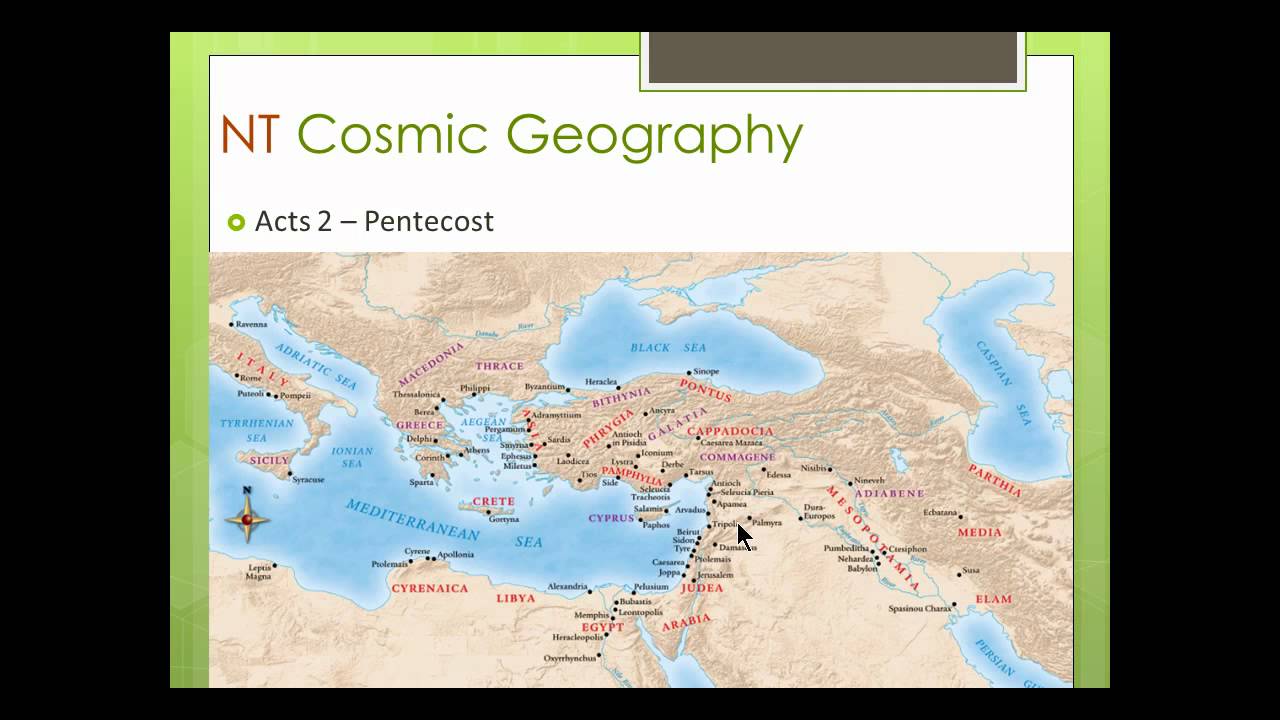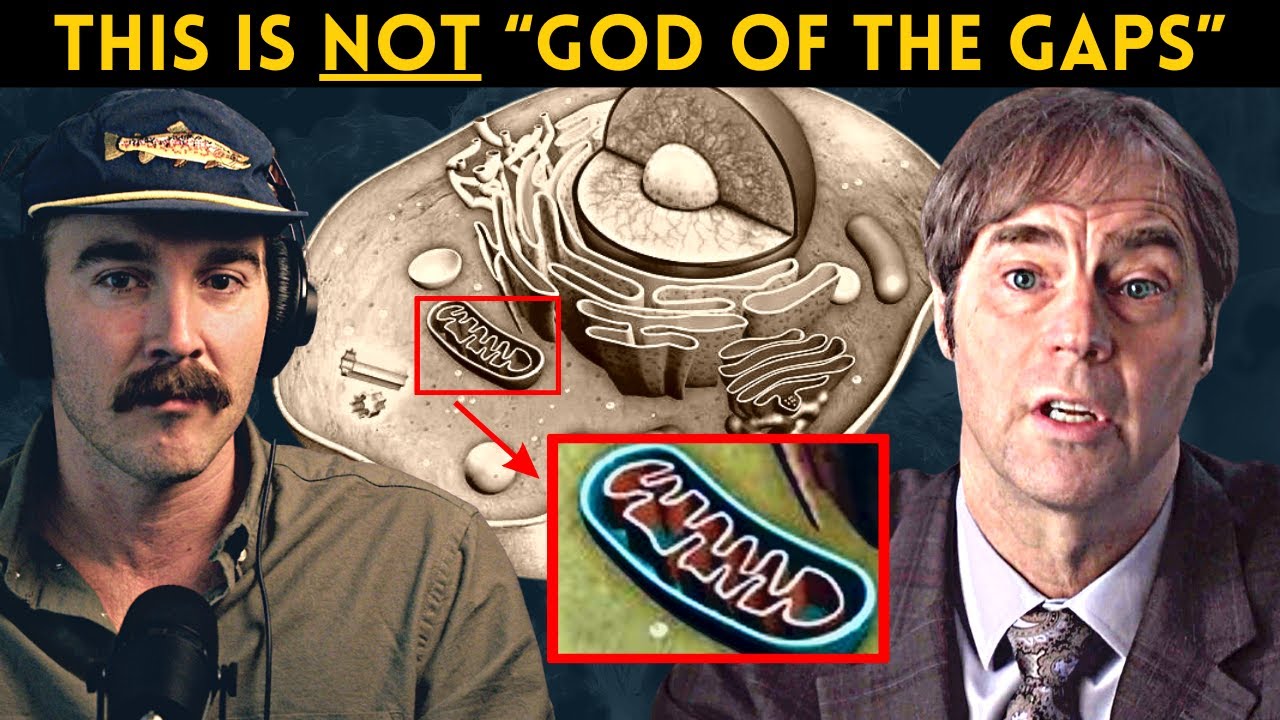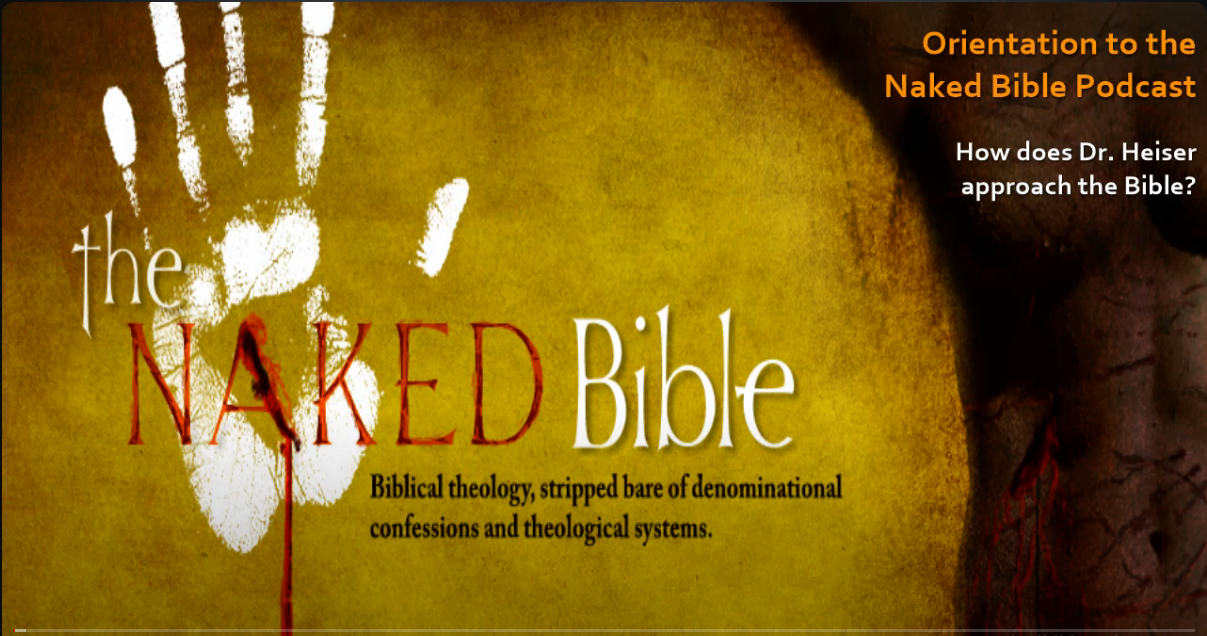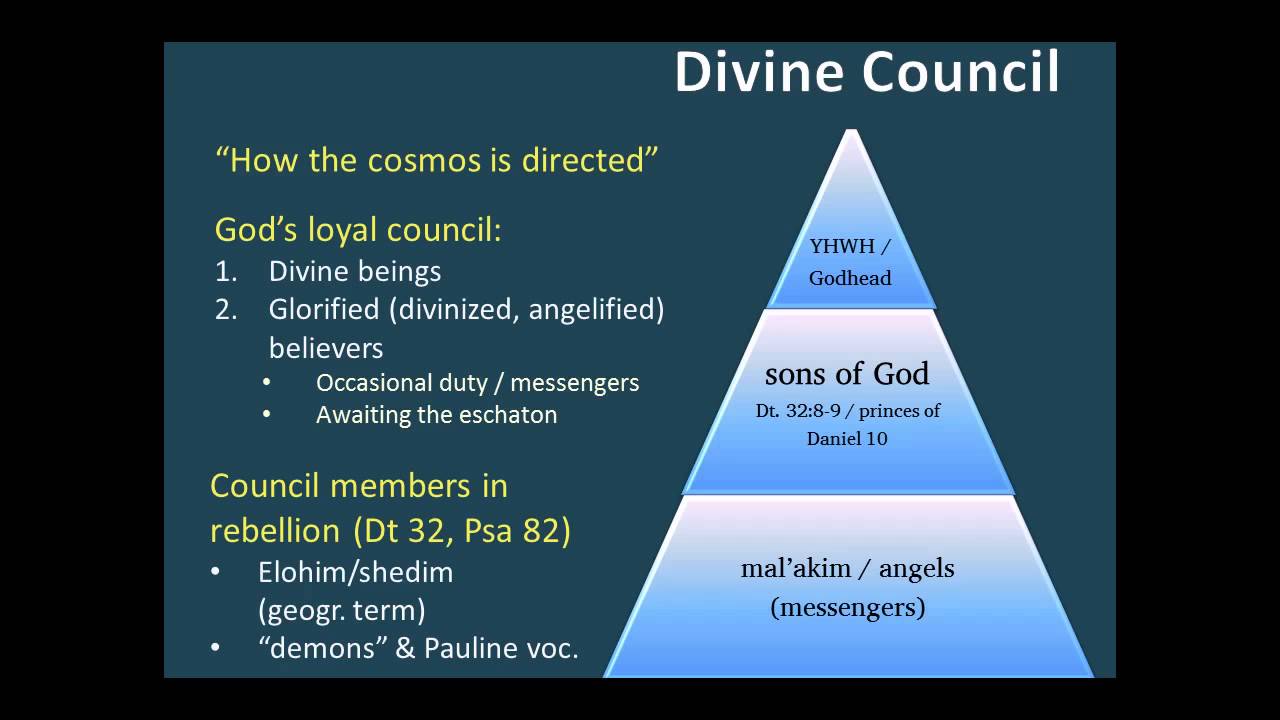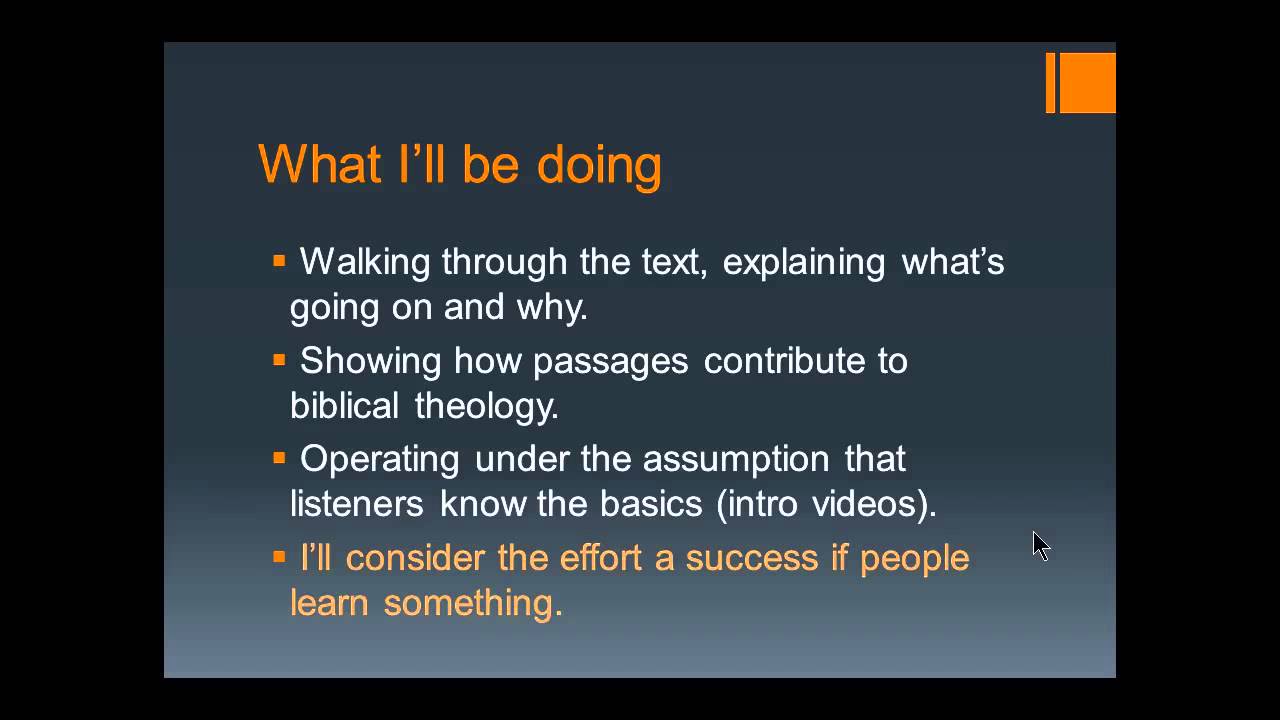In this podcast, the speaker, Dr. Stephen Meyer, discusses the intersection of science, philosophy, and religion, particularly focusing on the debate surrounding Intelligent Design (ID) and the demarcation problem in science. The discussion revolves around defining what constitutes true science versus pseudoscience and the implications of restricting scientific inquiry to purely materialistic explanations.
Key Points from the Conversation:
- Demarcation Problem: Dr. Meyer emphasizes the challenge of defining science and distinguishing it from pseudoscience, philosophy, or religion. The term "pseudoscience" is used pejoratively and often without engaging in the actual arguments of the proponents of ID.
- Methodological Naturalism: The dominant view in science, which restricts explanations to strictly materialistic causes and excludes the possibility of intelligent causation. Dr. Meyer argues that this limits the scope of scientific inquiry and may prevent the discovery of the best explanations for certain phenomena.
- Intelligent Design and Empirical Detection: The proponents of ID argue that certain features of living systems exhibit hallmarks of an intelligent cause, which is empirically detectable. Dr. Meyer contends that the methods used to infer intelligent agency in other fields, like archaeology, are also applicable to biological systems.
- The Origin of the Universe and Cosmological Models: The conversation delves into the origin of the universe, discussing various cosmological models and the evidence supporting a finite beginning of the universe. This includes the Big Bang Theory, the inflationary model, and the implications of recent observations and theoretical physics, like the James Webb telescope data and the singularity theorems of Hawking, Penrose, and Ellis.
- Materialistic vs. Theistic Explanations: Dr. Meyer argues that materialistic explanations for the origin of the universe are inadequate, as they cannot account for the beginning of matter, space, time, and energy. He suggests that a transcendent, intelligent cause provides a more plausible explanation, aligning with theistic views.
- The Nature of Consciousness and Human Rights: The conversation also touches on the nature of human consciousness, the existence of objective moral principles, and the ability of the human mind to comprehend the universe, suggesting that these aspects of human experience point towards a theistic understanding of the world.
Insights Based on Numbers:
- 10^77: Dr. Meyer mentions this number when discussing the improbability of generating functional protein structures through random mutations, highlighting the vastness of non-functional sequence space compared to the rarity of functional protein folds.
- 1,200 Amino Acids: In the context of discussing mutations in proteins, it's mentioned that a specific protein involved in the COVID virus has 1,200 amino acids, illustrating the complexity and size of biological molecules and the challenges in altering their structures through random mutations.
Exploratory Questions:
- Intelligent Design vs. Evolution: How does the concept of intelligent design challenge the traditional views of evolutionary biology?
- Demarcation in Science: What implications does the demarcation problem have for the acceptance and progress of scientific theories?
- Cosmological Implications: How do recent discoveries in cosmology and theoretical physics support or challenge the notion of a transcendent creator?
1)Intelligent Design vs. Evolution:
The complexity of biological systems poses significant challenges to Neo-Darwinism, particularly in explaining life's origins and diversity. Here's a deeper look into the implications of this complexity:
Complexity of Protein Folds: Dr. Meyer highlights that the transition from one protein fold to another requires a 75% change in sequence, underlining the improbability of such transformations occurring through random mutations. This observation challenges the Neo-Darwinian model, which relies on random mutations and natural selection to account for new biological features. The rarity of functional protein folds in the vast sequence space makes it highly unlikely for random mutations to lead to new, functional biological structures.
Information in DNA: The information in DNA, which is necessary for building proteins and new cell types, poses another challenge. Neo-Darwinism struggles to explain the origin of the precise, complex information encoded within DNA. The need for new instructions in DNA to build new proteins and cell types underscores the necessity for an information source far more sophisticated than random mutations.
Inadequacy of Mutation and Natural Selection: Dr. Meyer argues that the mechanisms of mutation and natural selection are inadequate for explaining the most fundamental units of change in biological history. To build new animal forms, new body plans, and new anatomical structures, there must be an influx of new genetic information. The Neo-Darwinian mechanisms have not provided a satisfactory explanation for the origin of this information.
In summary, the complexity of biological systems, the specificity and complexity of information in DNA, and the inadequacy of mutation and natural selection in accounting for fundamental biological changes challenge the adequacy of Neo-Darwinism in explaining life's origins and diversity. These points suggest the need for a more comprehensive understanding of life's complexity, potentially pointing towards intelligent design as a more plausible explanation.
2)Demarcation in Science:
The challenge evolutionary theory faces in explaining human morality centers on its inability to account for the inherent distinction between good and evil, as well as the depth and nuance of moral intuition and reasoning. Here's a breakdown of the main points discussed by Dr. Meyer:
Instincts and Morality: Evolutionary theory suggests that our moral intuitions and behaviors are programmed into us through evolutionary processes. However, this explanation falls short as it also attributes instincts such as aggression, theft, and other socially condemned behaviors to the same evolutionary processes. This creates a paradox: if evolution is responsible for all our instincts, it cannot provide a framework to distinguish between what we consider morally good and morally bad behaviors.
Lack of Ultimate Moral Authority: Evolutionary ethics cannot establish a basis for morality that transcends survival or genetic propagation. If our moral intuitions are solely the product of evolutionary processes aimed at survival, there's no reason to adhere to them, especially if individual interests diverge from those of the species. This leads to moral relativism, where actions like theft or worse could be justified if they benefit the individual, contradicting our innate sense of morality.
Evolution and Eugenics: Dr. Meyer highlights the disturbing historical ties between evolutionary theory and eugenics. The idea of improving the human race by selective breeding or other methods to eliminate perceived undesirable traits aligns with an extreme interpretation of 'survival of the fittest'. However, our moral intuition strongly rejects such practices, emphasizing care for the weak and vulnerable. This contradiction points to the insufficiency of evolutionary theory in capturing the essence of human morality.
Inadequacy in Explaining Moral Consciousness: Evolutionary theory struggles to explain the origin and nature of moral consciousness - our ability to reflect on our actions, make moral judgments, and feel empathy. This aspect of human nature is complex and transcends the simplistic survival-oriented perspective offered by evolutionary explanations.
In summary, while evolutionary theory may account for certain behavioral tendencies or social structures observed in animals and humans, it falls short in explaining the depth, complexity, and inherent sense of justice and empathy that characterize human morality. The challenges in aligning evolutionary explanations with our understanding of morality suggest the need for a more comprehensive perspective that acknowledges the unique and profound nature of human moral consciousness.
3)Cosmological Implications:
The concept of fine-tuning in the universe supports the argument for intelligent design over the Multiverse hypothesis in several compelling ways:
Precise Conditions Necessary for Life: The universe exhibits a remarkable set of finely-tuned conditions necessary for life. These include the strengths of fundamental forces, the masses of elementary particles, and the cosmological constant driving the universe's expansion. These parameters fall within incredibly narrow ranges, outside of which life as we know it could not exist. The precision of these conditions suggests intentional calibration, which aligns more closely with the concept of intelligent design than random chance.
Complexity vs. Simplicity in Explanatory Models: The fine-tuning argument for intelligent design is based on the principle of parsimony, preferring simpler explanations that do not multiply theoretical entities unnecessarily. The intelligent design hypothesis requires the positing of a single transcendent intelligence. In contrast, the Multiverse hypothesis requires not only the existence of countless other universes but also complex, unproven theoretical entities and mechanisms to generate these universes, making it a more convoluted explanation.
Inadequacy of the Multiverse Hypothesis: Dr. Meyer points out that even if there were countless other universes, the Multiverse hypothesis fails to provide a satisfactory causal explanation for the fine-tuning observed in our universe. The hypothesis relies on universe-generating mechanisms, like string theory or inflationary cosmology, which themselves require additional, unproven theoretical entities. Moreover, these mechanisms necessitate prior fine-tuning to function, leading to a regress problem where the fine-tuning issue is not resolved but merely pushed back a step further.
Alignment with Known Causes of Fine-Tuning: In our experience, finely-tuned systems, whether they be in engineering, digital systems, or natural laws, invariably arise from intelligent agents. The observable fine-tuning in the universe, therefore, aligns more closely with what we know about the causes of fine-tuning, suggesting an intelligent source rather than random processes.
In conclusion, the concept of fine-tuning in the universe provides substantial support for the argument of intelligent design. It presents a more straightforward, causally adequate explanation compared to the Multiverse hypothesis, which is encumbered by its complexity, lack of direct evidence, and failure to provide a causal account for the observed fine-tuning. The precision and specificity of the conditions necessary for life point towards an intelligent source, making the intelligent design hypothesis a compelling explanation for the fine-tuning of the universe.
In the second part of the podcast, Dr. Stephen Meyer delves deeper into the complexities of biological systems, the nature of human morality, and the philosophical implications of scientific discoveries, shedding light on the ongoing debate between materialism and theism.
Key Points from the Conversation:
- Neo-Darwinism's Shortcomings: Dr. Meyer critiques the inability of Neo-Darwinism, which relies on random mutations and natural selection, to account for the most fundamental unit of biological change. He emphasizes the need for new genetic information to build new proteins, tissues, and ultimately, new body plans.
- Morality and Evolution: The discussion also touches on the inadequacy of evolutionary explanations for human morality. Dr. Meyer argues that if evolutionary processes are responsible for both moral and immoral instincts, then they cannot provide a meaningful distinction between good and evil.
- Fine-Tuning and the Multiverse: Dr. Meyer addresses the concept of fine-tuning in the universe, suggesting that the precise conditions necessary for life point towards intelligent design. He counters the Multiverse hypothesis, which posits numerous universes to explain the fine-tuning, by highlighting its reliance on additional unproven theoretical entities and its inability to provide a satisfactory causal explanation.
- Science, Faith, and Intelligent Design: Dr. Meyer reiterates his stance on the compatibility of science and faith, arguing that scientific discoveries about the universe, from its finite beginning to the complex information processing systems within cells, align more closely with theistic beliefs than materialistic views.
Insights Based on Numbers:
- 75% Sequence Change: Dr. Meyer discusses the significant sequence change required to transition from one protein fold to another, highlighting the complexity and improbability of such transformations through random mutations alone.
Exploratory Questions:
- Challenges to Neo-Darwinism: How does the complexity of biological systems challenge the adequacy of Neo-Darwinism in explaining life's origins and diversity?
- Morality and Evolution: Can evolutionary theory adequately explain the basis of human morality and the distinction between good and evil?
- Fine-Tuning and Intelligent Design: How does the concept of fine-tuning in the universe support the argument for intelligent design over the Multiverse hypothesis?
1)Challenges to Neo-Darwinism:
The complexity of biological systems presents formidable challenges to the adequacy of Neo-Darwinism, particularly in its capacity to explain life's origins and the vast diversity of species. Dr. Stephen Meyer in the video meticulously outlines these challenges, emphasizing the insufficiency of Neo-Darwinism to account for the intricate structures and information-rich processes that are foundational to life. Here are some key points that elaborate on these challenges:
1. Insufficiency in Explaining Protein Fold Complexity:
- Complexity of Protein Folds: Protein folds are fundamental to biological functions, and their complexity is staggering. Dr. Meyer discusses the improbability of random mutations leading to functional protein folds, highlighting that the transition from one protein fold to another would require a substantial sequence change, a process incredibly unlikely to occur through random mutations.
- Vastness of Sequence Space: The sequence space (all possible arrangements of amino acids) is vast, and functional protein folds occupy an exceedingly small portion of this space. Random mutations are far more likely to result in non-functional proteins than to stumble upon a viable new protein fold.
2. Inadequacy in Explaining Information Origin:
- Information-Rich Structures: Biological systems are not just complex; they are information-rich. DNA, for instance, contains detailed instructions for building proteins and regulating cellular functions. Neo-Darwinism, centered on random mutation and natural selection, offers no robust mechanism for the origin of this complex information.
- Analogy with Human-Designed Systems: Dr. Meyer draws an analogy between biological systems and human-designed systems (like software code), where we observe that high levels of complexity and information invariably originate from an intelligent source. The presence of such complex information in biological systems thus challenges the notion that it could arise from random, undirected processes.
3. Limitations of Natural Selection and Random Mutations:
- Natural Selection's Role: While natural selection plays a role in preserving beneficial traits, it does not generate new information. It can only "select" from what is already present, not create novel complex structures or information.
- Random Mutations and Destructive Tendencies: Random mutations are more likely to destroy function than create novel, complex biological features. Dr. Meyer points out that mutations tend to degrade the stability of protein structures long before they could potentially generate new functional folds or complex features.
4. Neo-Darwinism's Narrow Explanatory Scope:
- Limited to Microevolutionary Changes: Neo-Darwinism can account for minor changes within species (microevolution) but struggles to explain the origin of new species, organs, or body plans (macroevolution). The mechanisms it proposes seem insufficient to drive the large-scale changes necessary for the diversity of life observed today.
In summary, the complexity of biological systems, the specificity and sophistication of information in DNA, and the limitations of mutation and natural selection in generating novel, functional biological structures pose significant challenges to the adequacy of Neo-Darwinism in explaining life's origins and the diversity of species. These challenges suggest the need for a more comprehensive framework that can account for the information-rich and intricately organized nature of life.
2)Morality and Evolution:
Dr. Stephen Meyer provides a detailed critique of evolutionary theory's ability to adequately explain the basis of human morality and the distinction between good and evil. The conversation delves into the philosophical and ethical implications of attributing our moral intuitions and behaviors to evolutionary processes. Here are the key points that highlight the challenges and limitations of using evolutionary theory to explain human morality:
1. Equivocation of Moral and Immoral Instincts:
- Moral Intuition vs. Survival Instincts: Evolutionary theory posits that both our moral intuitions and our baser survival instincts (like aggression or selfishness) are the result of evolutionary processes. This creates a conundrum: if the same process is responsible for both, it fails to provide a framework to discern moral actions from immoral ones. There's no basis within the theory to differentiate why some instincts lead to commendable moral behavior while others lead to actions universally deemed immoral.
2. Lack of Ultimate Moral Authority:
- Moral Relativism and Individual Interests: If our moral intuitions are solely the result of evolutionary programming for survival, then they lack an absolute moral authority. When individual interests diverge from the perceived collective good, there's no inherent reason, according to evolutionary ethics, to adhere to moral intuitions. This leads to moral relativism, where any action, including those considered immoral, can be justified if they benefit the individual, undermining the concept of a universal moral code.
3. Evolutionary Ethics and Societal Implications:
- Evolution and Eugenics: The discussion touches on the historical application of evolutionary theory to justify eugenics, highlighting a disturbing alignment between the 'survival of the fittest' notion and practices aimed at eliminating perceived undesirable traits in the human population. This starkly contrasts with our innate moral imperative to care for the weak and vulnerable, revealing a disconnect between evolutionary explanations of morality and our deep-seated moral convictions.
- Inadequacy in Explaining Moral Consciousness: Evolutionary theory struggles to account for the depth of human moral consciousness, including our capacity for empathy, altruism, and the complex moral reasoning that governs our social interactions and personal decisions.
4. Evolutionary Explanation as Insufficient for Moral Distinction:
- Indistinct Origin of Good and Evil: If evolutionary processes are credited with the origin of both socially accepted moral behaviors and socially condemned immoral behaviors, the theory offers no intrinsic criteria to distinguish between good and evil. It treats all behaviors as evolutionary adaptations without providing a moral framework to evaluate the ethical implications of these behaviors.
In summary, while evolutionary theory may provide insights into certain social behaviors or tendencies observed in humans and other animals, it falls short in offering a comprehensive and coherent explanation for the nuances, depth, and universality of human morality. The inherent complexity of moral reasoning, the need for an absolute moral framework, and the recognition of actions as inherently good or evil challenge the adequacy of evolutionary theory in fully explaining the basis of human morality and the distinction between good and evil.
2)Morality and Evolution:
Dr. Meyer critically examines the ability of evolutionary theory to adequately explain the basis of human morality and the distinction between good and evil. He articulates several key points that challenge the sufficiency of evolutionary explanations in accounting for the depth, complexity, and universality of moral intuitions and principles:
1. Lack of Moral Distinction in Evolutionary Processes:
- Equivocation of Instincts: Evolutionary theory posits that both our moral inclinations and our baser instincts are the result of evolutionary processes aimed at survival and reproduction. This perspective leads to a significant problem: if evolution is responsible for instilling both altruistic behaviors and selfish or aggressive instincts, it lacks a principled basis to differentiate morally commendable actions from those considered morally reprehensible.
2. Absence of Ultimate Moral Authority:
- Relativism and Individual Interests: When moral intuitions are viewed solely as products of evolutionary survival strategies, they lack an intrinsic moral authority or absolute standard. In such a framework, when personal interests diverge from collective or species-wide benefits, there's no compelling evolutionary reason to adhere to moral norms. This perspective can lead to moral relativism, where any behavior could be justified if it benefits the individual, undermining the notion of universal moral principles.
3. Inadequacy in Explaining Human Moral Consciousness:
- Depth and Nuance of Morality: Evolutionary theory struggles to comprehensively explain human moral consciousness, particularly our capacity for empathy, selfless altruism, and the complex moral reasoning that underpins societal norms and personal ethics. These aspects of human morality exhibit a depth and sophistication that go beyond mere survival strategies, challenging the ability of evolutionary explanations to fully account for them.
4. Societal Implications of Evolutionary Ethics:
- Historical Misapplications: Dr. Meyer discusses how evolutionary theory has been historically misapplied to justify practices like eugenics, revealing a disturbing misalignment between such interpretations of evolution and our inherent moral sensibilities. The notion of 'survival of the fittest' has been used to rationalize the elimination of individuals deemed 'unfit', directly contradicting our innate moral imperative to protect and care for the vulnerable and disadvantaged. This stark contrast underscores the insufficiency of evolutionary theory in capturing the essence and depth of human morality.
5. Evolution's Inability to Provide Moral Standards:
- No Criterion for Moral Judgments: If evolutionary processes are credited with the origin of all human behaviors and inclinations, the theory offers no inherent standard or criterion to discern moral actions from immoral ones. Without an external moral framework or a higher standard of good and evil, evolutionary theory cannot provide a sufficient basis for moral judgments or ethical evaluations.
In summary, while evolutionary theory may shed light on certain behavioral patterns or social tendencies observed in humans and other species, it faces significant challenges in offering a complete and coherent explanation for the complexity, depth, and universality of human morality. The profound nature of moral reasoning, the necessity for an absolute moral framework, and the inherent recognition of actions as good or evil pose substantial obstacles to the sufficiency of evolutionary theory in fully elucidating the basis of human morality and the distinction between good and evil.
3)Fine-Tuning and Intelligent Design:
The concept of fine-tuning in the universe significantly bolsters the argument for intelligent design, presenting a robust counterpoint to the Multiverse hypothesis. Dr. Stephen Meyer articulates a persuasive case, underscoring the intricate precision and delicately balanced conditions necessary for life, which he contends are best explained by an intelligent cause rather than random chance or a multitude of universes. Here's an elaboration based on the contents of the conversation:
1. Exquisite Precision in Universal Constants:
- Parameters within Narrow Ranges: The fine-tuning of the universe is evident in the incredibly precise values of fundamental constants and quantities. These include the strengths of the fundamental forces (gravity, electromagnetism, strong and weak nuclear forces), the ratios of particle masses, and the rate of the universe's expansion. These parameters fall within remarkably narrow ranges that allow for the existence of complex life, suggesting a fine-tuner who calibrated the universe with precision.
2. Complexity of Fine-Tuning vs. Simplicity of Intelligent Design:
- Parsimony in Explanatory Models: The principle of parsimony (Occam's Razor) favors simpler explanations that do not unnecessarily multiply entities or assumptions. Intelligent design posits a singular intelligent cause, whereas the Multiverse hypothesis requires the existence of an immense number of universes and complex, speculative mechanisms to generate them, making it a more convoluted and less parsimonious explanation.
3. Inadequacies and Challenges of the Multiverse Hypothesis:
- Causal Disconnection Issue: The Multiverse hypothesis suggests that other universes exist but are causally disconnected from ours. This raises the question of how these separate universes could have any bearing on the fine-tuning observed in our universe. To address this, proponents must invoke universe-generating mechanisms (like string theory or inflationary cosmology), which themselves require additional unproven entities and are subject to their own fine-tuning challenges.
- Regressing Fine-Tuning Problem: Even if universe-generating mechanisms are posited, they themselves necessitate finely-tuned initial conditions to function as hypothesized. This leads to a regress where the fine-tuning problem is not resolved but merely pushed back to a prior level, leaving the fundamental issue of fine-tuning unexplained.
4. Alignment with Known Causes of Fine-Tuning:
- Empirical Basis for Intelligent Design: In our universal experience, finely-tuned systems that exhibit intricate precision and ordered complexity invariably originate from intelligent agents. The fine-tuning observed in the universe aligns closely with this empirical knowledge, making intelligent design a compelling explanation based on what we consistently observe and understand about the origins of complex, information-rich structures.
In conclusion, the concept of fine-tuning in the universe profoundly supports the argument for intelligent design over the Multiverse hypothesis. The precision and intricacy of the conditions necessary for life, the parsimony and causal adequacy of the intelligent design hypothesis, and the challenges and speculative nature of the Multiverse hypothesis collectively favor an interpretation of the universe as a product of intelligent causation.
The fine-tuning of the universe, rather than being a random occurrence among countless universes, appears to be a deliberate calibration, pointing to a purposeful and intelligent designer.
